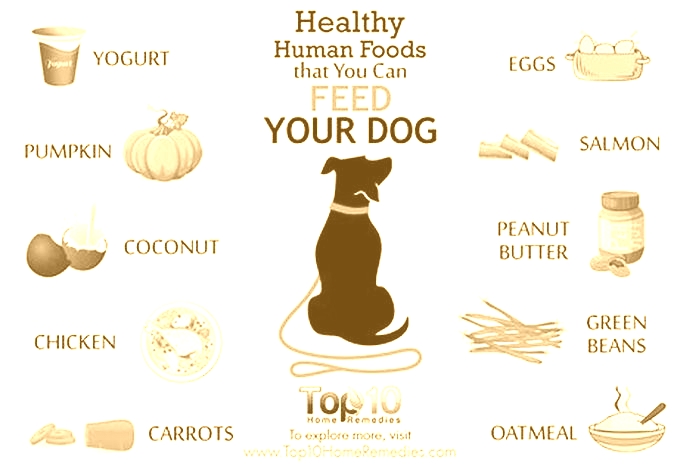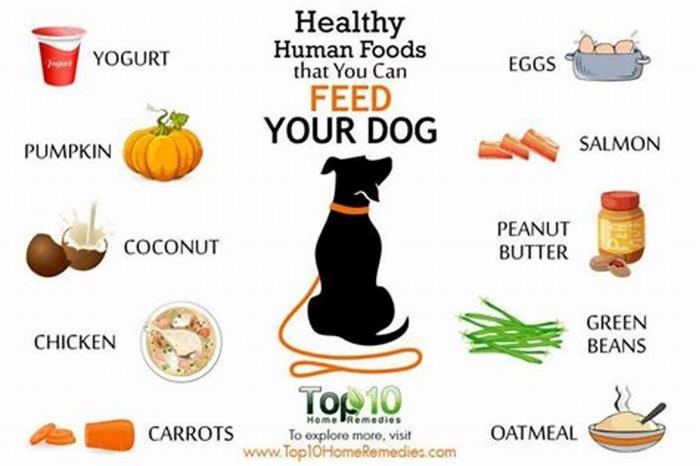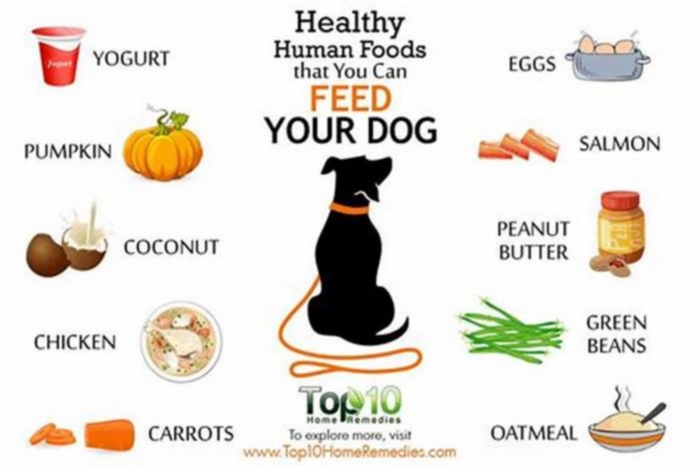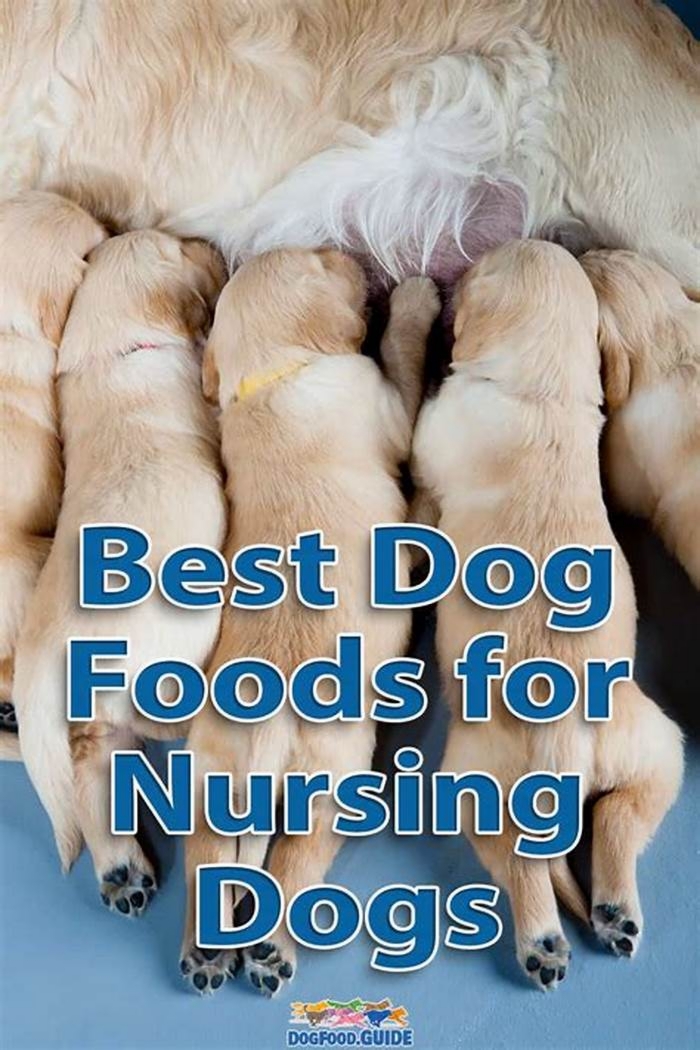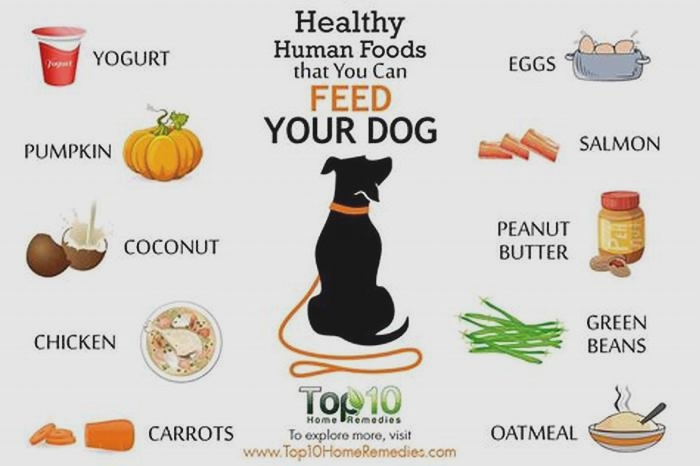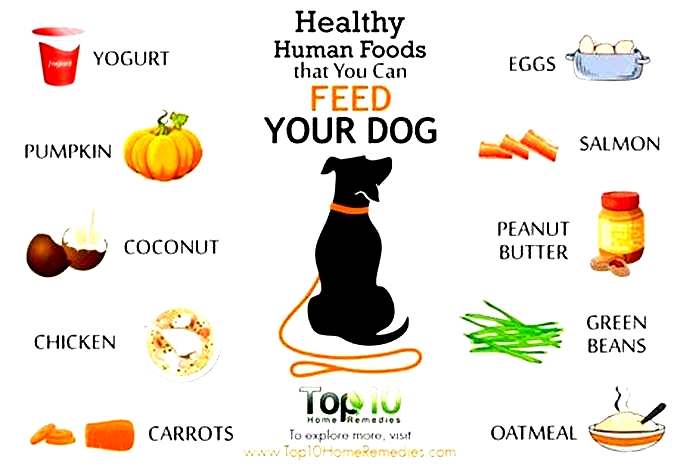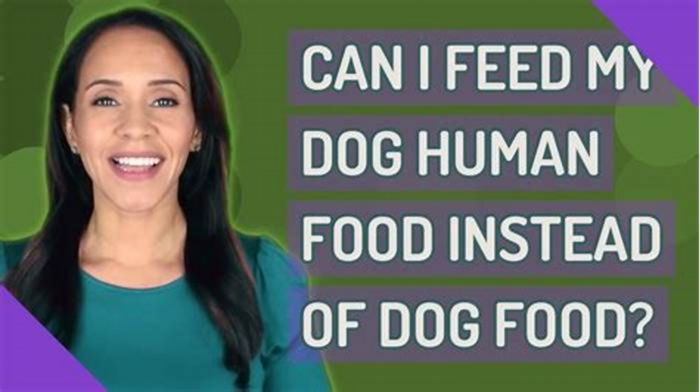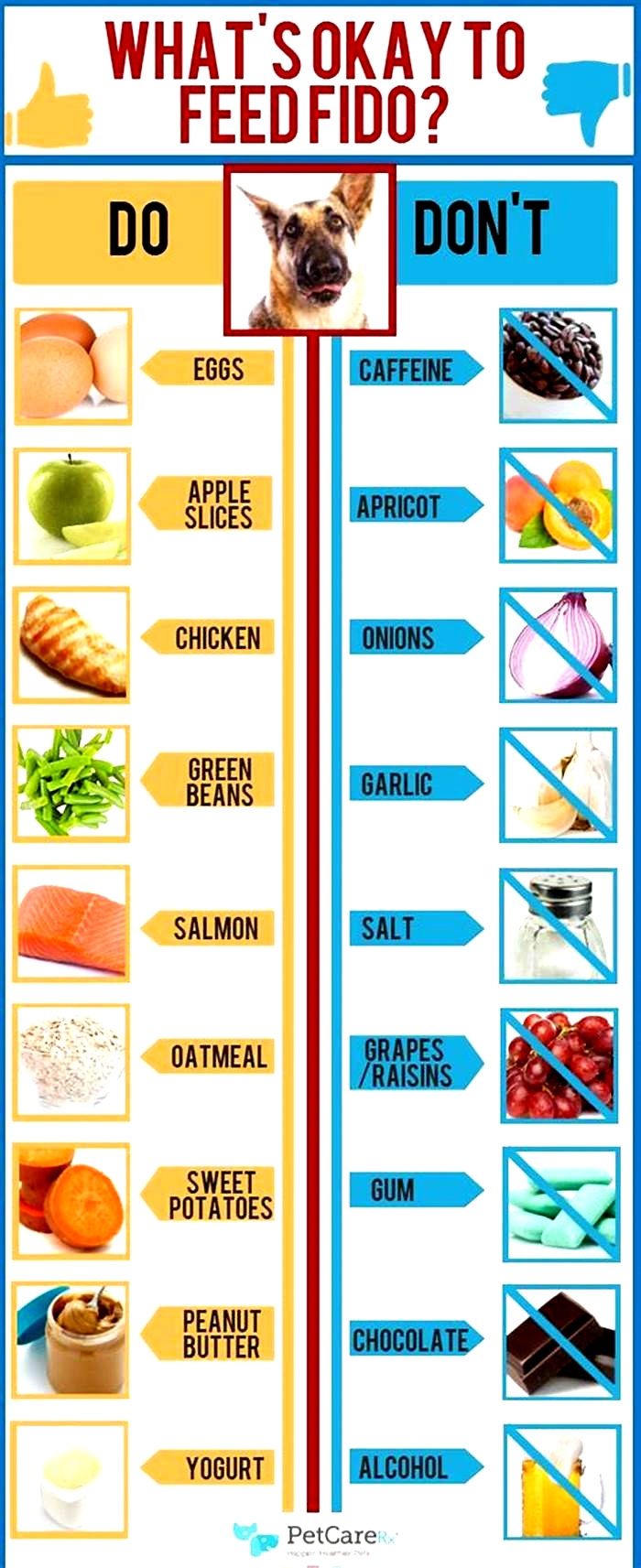how to feed your dog human food
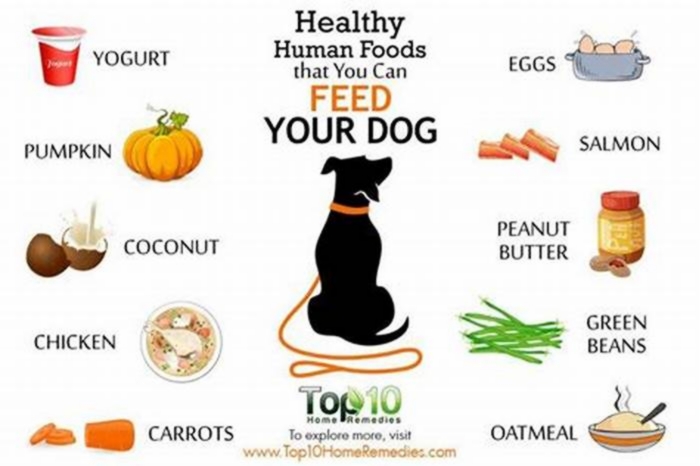
Feeding your dog human food? What you need to know
The Benefits of Feeding Your Dog Human Food
Feeding your dog certain people food can be a great way to provide them with a balanced and nutritious diet. While it is important to be mindful of what you feed your dog, there are many benefits to including our food in their diet. Here are some of the benefits of feeding your dog human food and what to look for when doing so.
One of the main benefiti is it can provide them with a more balanced diet. Many commercial dog foods are made with fillers and other ingredients that may not provide the necessary nutrients for your dog. By adding human food to their diet, you can ensure that they are getting the vitamins and minerals they need to stay healthy.
Another benefit of feeding your dog human food is that it can help to reduce the risk of obesity. Many commercial dog foods are high in calories and fat, which can lead to weight gain. By adding human food to their diet, you can help to reduce the amount of calories and fat they consume.
When feeding your dog human food, it is important to look for foods that are high in protein and low in fat. Protein is essential for your dogs growth and development, and it can help to keep them feeling full for longer. Look for lean meats such as chicken, turkey, and fish, as well as eggs and dairy products.
It is also important to look for foods that are high in fiber. Fiber helps to keep your dogs digestive system healthy and can help to reduce the risk of constipation. Look for whole grains such as oats, barley, and brown rice, as well as fruits and vegetables.
Finally, it is important to look for foods that are low in sodium. Too much sodium can lead to dehydration and other health problems. Look for foods that are low in sodium, such as fruits and vegetables, as well as lean meats and dairy products.
By following these guidelines, you can ensure that your dog is getting the nutrition they need while also enjoying the benefits of human food. Feeding your dog human food can be a great way to provide them with a balanced and nutritious diet.
The Dos and Donts
Dos
1. Do feed your dog lean proteins such as cooked chicken, turkey, or fish.
2. Do feed your dog cooked vegetables such as carrots, green beans, and sweet potatoes.
3. Do feed your dog fruits such as apples, bananas, and blueberries.
4. Do feed your dog plain yogurt, cottage cheese, and eggs.
5. Do feed your dog whole grains such as brown rice, oatmeal, and quinoa.
Donts
1. Dont feed your dog fatty meats such as bacon, sausage, or hot dogs.
2. Dont feed your dog raw or undercooked meats, fish, or eggs.
3. Dont feed your dog onions, garlic, or chives.
4. Dont feed your dog chocolate, grapes, or raisins.
5. Dont feed your dog nuts, seeds, or avocados.
What to Include in Your Dogs Diet
A balanced diet is essential for the health and wellbeing of your dog. While there are many commercial dog foods available, it is also possible to supplement your dogs diet with human foods. However, it is important to be aware of which human foods are safe for your dog and which should be avoided.
The best human foods for dogs are those that are high in protein and low in fat. Lean meats such as chicken, turkey, and beef are excellent sources of protein and can be served cooked or raw. Fish is also a good source of protein, but it should be cooked before feeding it to your dog. Eggs are another great source of protein and can be served cooked or raw.
Fruits and vegetables are also beneficial for your dogs diet. Apples, bananas, carrots, and sweet potatoes are all safe for your dog to eat. However, it is important to remove any seeds or pits before feeding them to your dog.
Whole grains such as brown rice, oats, and quinoa are also beneficial for your dogs diet. These grains are high in fiber and can help to keep your dogs digestive system healthy.
Yogurt is a great source of probiotics and can help to keep your dogs digestive system in balance. However, it is important to choose a yogurt that does not contain any added sugar.
Finally, it is important to remember that some human foods can be toxic to dogs. Chocolate, grapes, and raisins should all be avoided as they can cause serious health problems. Additionally, it is important to avoid giving your dog any foods that contain onions, garlic, or chives as these can be toxic to dogs.
By following these guidelines, you can ensure that your dog is getting the nutrition they need from their diet. With the right combination of human foods and commercial dog foods, you can provide your dog with a balanced and nutritious diet.
The Dangers: What to Avoid
Feeding your dog human food can be a tempting way to show your pet love and affection. However, it is important to be aware of the potential dangers of feeding your dog human food. Many human foods can be toxic to dogs, and some can even be fatal. To ensure the safety and health of your pet, it is important to be aware of which human foods to avoid.
The most important food to avoid is chocolate. Chocolate contains theobromine, a compound that is toxic to dogs. Even small amounts of chocolate can cause vomiting, diarrhea, and an irregular heartbeat. In severe cases, chocolate can cause seizures, coma, and even death.
Grapes and raisins are also toxic to dogs. While the exact cause of toxicity is unknown, these fruits can cause kidney failure in dogs. Symptoms of grape or raisin toxicity include vomiting, diarrhea, and lethargy.
Onions and garlic are also dangerous for dogs. These foods contain compounds that can damage red blood cells, leading to anemia. Symptoms of onion or garlic toxicity include vomiting, diarrhea, and pale gums.
Alcoholic beverages should also be avoided. Alcohol can cause vomiting, diarrhea, and even respiratory failure in dogs.
Finally, it is important to avoid giving your dog bones. While bones may seem like a natural treat for dogs, they can splinter and cause choking or intestinal blockage.
In conclusion, it is important to be aware of the potential dangers of feeding your dog human food. Chocolate, grapes and raisins, onions and garlic, alcoholic beverages, and bones should all be avoided. By following these guidelines, you can ensure the safety and health of your pet.
Tips and Tricks on How To Pre Pare Food
Feeding your dog human food can be a great way to provide them with a nutritious and delicious meal. However, it is important to remember that not all human food is safe for dogs to eat. To ensure that your pup is getting the best nutrition possible, here are some tips and tricks for preparing human food for your canine companion.
1. Choose the Right Foods: Not all human foods are safe for dogs to eat. Foods that are high in fat, sugar, and salt should be avoided, as they can cause digestive issues and other health problems. Additionally, some foods, such as chocolate, grapes, and onions, can be toxic to dogs. Be sure to research any food you plan to give your pup before feeding it to them.
2. Cook the Food: Raw meats and eggs can contain bacteria that can make your pup sick, so it is important to cook any human food you plan to give your dog. Additionally, some foods, such as grains and legumes, should be cooked before feeding them to your pup.
3. Cut the Food into Small Pieces: Dogs have smaller mouths than humans, so it is important to cut any human food you give them into small pieces. This will make it easier for them to chew and digest the food.
4. Avoid Adding Seasonings: Dogs have sensitive stomachs, so it is best to avoid adding any seasonings or sauces to their food. Stick to plain, unseasoned foods to ensure that your pup is getting the nutrition they need without any added ingredients that could upset their stomach.
5. Monitor Your Dogs Reaction: As with any new food, it is important to monitor your pups reaction to the human food you give them. If they seem to be having any digestive issues or other reactions, it is best to stop feeding them the food and consult your veterinarian.
By following these tips and tricks, you can ensure that your pup is getting the nutrition they need while still enjoying a delicious human food meal.
16 Healthy Human Foods for Dogs (That You Havent Thought Of)
Rarely, if ever, are we encouraged to feed our dogs human foods, but some whole foods can actually have great health benefits. But some of the best human foods for dogs, when fed in moderation, can provide a lot of health benefits and improve your dogs overall well-being.
Many pet owners already know about some of the more popular best human foods for dogs, like pumpkin (and its seeds), apples, carrots, peanut butter, and so on. But we've been missing out by excluding plenty of other safe and healthy human foods for dogs that would provide an abundance of vitamins, minerals, fiber, and other good things.
How can you use these foods? There are many ways. You can either give them as snacks to your dogs in between meals instead of highly processed dog treats; you can mix them with the dog food to improve taste, smell, and nutrient profile; or you can make your own homemade dog food recipes using these ingredients, which can be particularly helpful for dogs with food allergies, sensitive stomachs, and other diet-related issues.
Here are 16 of the best human foods for dogs that you probably haven't thought of yet.
16 Best Human Foods for Dogs(That You Haven't Thought Of)

1. Oatmeal
Oatmeal is found in the ingredients list of many commercially made dog foods, but it can be fed to your dog as is (or mixed with dog food). High soluble fiber content makes oatmeal beneficial to the dog's digestive system, and high volumes of vitamins and minerals like magnesium, copper, and iron make oatmeal very nutritious.
People have been eating oatmeal as a healthy food for centuries, but few have considered it as one of the best human foods for dogs that can provide a lot of good things. An added benefit of oatmeal for dogs is its high levels of antioxidants, which battle free radical damage, decrease inflammation, reduce itching, and lower blood pressure.
The more you know: Oatmeal is often utilized to improve weight gain for underweight dogs, and veterinarians sometimes recommend it as part of the diet.
2. Celery
 Dogs may eat celery in moderation; however, some dogs find the texture of this raw veggie difficult to chew. When feeding your dog celery, make sure to remove leaves and cut celery sticks into smaller pieces to avoid choking hazards. Its also important to note that eating too much celery can have a diuretic effect on the dog.
Dogs may eat celery in moderation; however, some dogs find the texture of this raw veggie difficult to chew. When feeding your dog celery, make sure to remove leaves and cut celery sticks into smaller pieces to avoid choking hazards. Its also important to note that eating too much celery can have a diuretic effect on the dog.
Potential benefits of celery for dogs include reduction of inflammation throughout the body, reduction of high blood pressure, improved liver health, improved digestion, improved infection-fighting capability, reduced occurrence of urinary tract infections, and decreased risk of cancer. This has also been shown in many human studies.
The more you know: At one time, celery was used by the pharmaceutical industry as a treatment for arthritis in people.
3. Cauliflower
 Cauliflower is a healthy food that some dogs enjoy, but others find appalling due to its taste and smell. Cauliflower for dogs is safe in moderation, but it's known for increasing flatulence. Your dog can eat raw or cooked unseasoned cauliflower. Although cooked is easier for the dog's digestion, raw cauliflower contains more healthy vitamins and nutrients.
Cauliflower is a healthy food that some dogs enjoy, but others find appalling due to its taste and smell. Cauliflower for dogs is safe in moderation, but it's known for increasing flatulence. Your dog can eat raw or cooked unseasoned cauliflower. Although cooked is easier for the dog's digestion, raw cauliflower contains more healthy vitamins and nutrients.
Cauliflower is one of the best human foods for dogs because it offers many health benefits, including improved weight loss for obese dogs, reduced inflammation, decreased risk of cancer, better digestion, protection of eye health, and improved clot formation due to higher Vitamin K content.
The more you know: Cauliflower has also been used to improve weight gain for underweight dogs.
4. Squash
 Roasted or boiled plain butternut squash for dogs will make a great treat for them, but squash must be peeled and seeded first. Raw squash should be avoided because it is harsh on the canine's digestive system and skin, and seeds can prove poisonous when consumed by dogs.
Roasted or boiled plain butternut squash for dogs will make a great treat for them, but squash must be peeled and seeded first. Raw squash should be avoided because it is harsh on the canine's digestive system and skin, and seeds can prove poisonous when consumed by dogs.
Squash is rich in fiber as well as vitamins A, C, and K. Feeding squash to dogs can help protect their eyesight and improve their digestive health, and it can be used as a more nutritious yet low-calorie filler or topper for foods instead of using grains.
The more you know: Yellow squash varieties are great for your dogs eyesight because they are rich in beta-carotene.
5. Sweet Potatoes
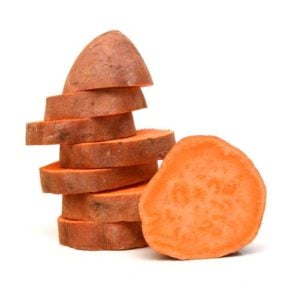 Sweet potatoes are a great treat and an alternative to regular potatoes in dog foods. Steamed or boiled and served in small portions, sweet potatoes are low in fat, high in fiber, and vitamin-rich. It's one of the best human foods for dogs that some pet owners have already taken a liking to and have been feeding to their pets for a while.
Sweet potatoes are a great treat and an alternative to regular potatoes in dog foods. Steamed or boiled and served in small portions, sweet potatoes are low in fat, high in fiber, and vitamin-rich. It's one of the best human foods for dogs that some pet owners have already taken a liking to and have been feeding to their pets for a while.
Potential benefits of sweet potatoes for dogs include protection of eye health, healthier skin and coat, healthy growth patterns, improved digestive health, improved heart health, reduced risk of degenerative disease, improved immune health, healthy thyroid function, healthy nerve conduction, protection against signs of aging, and protection against cancer.
The more you know: Sweet potatoes come in various colors, and each variety offers specific health benefits. The purple sweet potato contains more anthocyanin (an antioxidant), the white sweet potato is more calorie-dense and best for undernourished dogs, and the orange sweet potato is richer in beta-carotene and better for your dogs eye health.
RECIPE:Sweet Potato Dog Biscuits
6. Watermelon
 When peeled, watermelon is a great low-calorie treat for your dog that also provides hydration during the summer months. Your dog should never consume the rind or seeds of the watermelon because they can be dangerous to your dogs health. You should also keep in mind that due to its water content, watermelon will increase your dogs frequency of urination.
When peeled, watermelon is a great low-calorie treat for your dog that also provides hydration during the summer months. Your dog should never consume the rind or seeds of the watermelon because they can be dangerous to your dogs health. You should also keep in mind that due to its water content, watermelon will increase your dogs frequency of urination.
Watermelon is one of the best human foods for dogs because of its increased antioxidant levels, and it improves the immune system functioning, improves circulation, betters heart health, increases hydration, improves digestion, gives healthier skin and coat, reduces the risk of cancer, and reduces high blood pressure.
The more you know: 92% of the watermelon is water, which is what makes it such a refreshing summer treat for you and your dog, especially when your pet refuses to drink plenty of liquids during hot days.
7. Strawberries
 Cleaned and hulled strawberries make a great treat for your dog when given in safe and moderate amounts. Too many strawberries can cause digestive upset in dogs. When giving your dog strawberries, be sure to cut them into smaller pieces to avoid choking and to make them easier to eat.
Cleaned and hulled strawberries make a great treat for your dog when given in safe and moderate amounts. Too many strawberries can cause digestive upset in dogs. When giving your dog strawberries, be sure to cut them into smaller pieces to avoid choking and to make them easier to eat.
Some of the benefits of giving your dog fresh strawberries include improved immune system functioning, better eye health, reduced inflammation throughout the body, protection against cancer, improved cognitive function, reduced risk of arthritis, maintenance of normal blood pressure, and a healthier nervous system.
The more you know: The high levels of nitrate in strawberries make them a great pre-exercise snack because they increase blood flow and oxygen delivery to your dogs muscles, just as they do for humans.
8. Bananas
 The flesh of the banana can be given to your dog in moderation, but the banana peel should always be removed. Due to the high sugar content of bananas and their ability to cause constipation, however, bananas should only be given to your pup in smaller quantities and on rare occasions.
The flesh of the banana can be given to your dog in moderation, but the banana peel should always be removed. Due to the high sugar content of bananas and their ability to cause constipation, however, bananas should only be given to your pup in smaller quantities and on rare occasions.
Bananas are great for your dogs digestive health and are rich in fiber and potassium. They're also beneficial to your dogs heart health, good for reducing high blood pressure, good for boosting the iron content of the blood, regulating the heartbeat, improving cognitive health, reducing inflammation, and protecting against and improving symptoms of degenerative diseases.
The more you know: Slightly green bananas are often given in small quantities to relieve diarrhea and can help to improve insulin sensitivity. They also have lower sugar content than ripe yellow bananas.
9. Coconut
 Coconut and its oil have been a hot topic recently, with a lot of proven benefits shown in studies, many of which are shown in dogs, too. The husk, shell, and coconut water from the coconut should be disposed of, but the meat and oil of the coconut are safe for dogs to eat. Coconut offers many health benefits, and recently, dog food companies are turning to it as a source of great products.
Coconut and its oil have been a hot topic recently, with a lot of proven benefits shown in studies, many of which are shown in dogs, too. The husk, shell, and coconut water from the coconut should be disposed of, but the meat and oil of the coconut are safe for dogs to eat. Coconut offers many health benefits, and recently, dog food companies are turning to it as a source of great products.
Coconut is one of the best human foods for dogs to eat because it's been shown to improve immune system health, decrease inflammation throughout the body, improve skin health, improve energy and stamina, improve digestive health, improve symptoms of diabetes, protect against cancer, improve heart health, support healthy thyroid function, protect against urinary tract infections, support kidney health, improve weight loss, and support healthy skin and coat.
The more you know: Many holistic veterinarians recommend that pet owners use coconut oil on their dogs coat to get rid of flea infestations.
10. Blueberries
 Blueberries are a superfood for dogs as well as humans. Theyre packed with fiber, antioxidants, and a wealth of vitamins. Many studies (see here) have demonstrated the benefits of blueberries, and it's regarded as one of the best fruits/berries to eat, ever.
Blueberries are a superfood for dogs as well as humans. Theyre packed with fiber, antioxidants, and a wealth of vitamins. Many studies (see here) have demonstrated the benefits of blueberries, and it's regarded as one of the best fruits/berries to eat, ever.
While blueberries for dogs are safe, you should give them in moderation to avoid upset stomachs. Blueberries are particularly good for boosting the immune system, preventing urinary tract infections, promoting cognitive and neural health, reducing the risk of eye diseases, and curing constipation.
The more you know: Blueberries are one of the most healthy fruits that dogs can eat, and the majority of canines love the taste.
11. Pork
 Pork is one of the least popular meats when it comes to feeding dogs. But skinless, unseasoned boiled pork with the fat trimmed is not only safe for your dog to eat, but it's also a great source of protein, vitamins, and minerals (and it's cheaper, too).
Pork is one of the least popular meats when it comes to feeding dogs. But skinless, unseasoned boiled pork with the fat trimmed is not only safe for your dog to eat, but it's also a great source of protein, vitamins, and minerals (and it's cheaper, too).
Pork should never be fed raw, however, due to the possibility of parasite infection. Among the meats, pork is one of the best human foods for dogs because it's rich in thiamine, selenium, zinc, and B vitamins. Thiamine is crucial in the metabolism of carbohydrates and the production of energy. Selenium protects against a range of diseases like arthritis, heart disease, and cancer. Zinc in limited quantities is beneficial for skin and coat health. B vitamins play an important role in dog's metabolism, neural health, and growth.
The more you know: Pork is sometimes incorporated into dog foods for dogs with protein allergies because it has a lower incidence of allergic reactions.
RECIPE:Beef and Pork Crock Pot Dog Food
12. Shrimp
 Another rarity among the best human foods for dogs lists, shrimp can be very good for your pooch. When boiled and served plain without legs and shell, shrimp is completely safe and healthy in moderation. As with people, too much shrimp can cause an increase in cholesterol, so it should be avoided in dogs with cardiovascular disorders or obesity.
Another rarity among the best human foods for dogs lists, shrimp can be very good for your pooch. When boiled and served plain without legs and shell, shrimp is completely safe and healthy in moderation. As with people, too much shrimp can cause an increase in cholesterol, so it should be avoided in dogs with cardiovascular disorders or obesity.
Shrimp provide high levels of copper, omega fatty acids, and selenium. Some of the benefits of giving small amounts of shrimp to dogs include reduced inflammation throughout the body, increased levels of antioxidants, reduced incidence of heart disease, improved nervous system health, and lowered blood pressure.
The more you know: Raw shellfish should never be fed to your dog due to the number of bacteria it may contain. Always prepare your dog's shrimp accordingly.
13. Tuna
 As with most fish, tuna is high in beneficial omega fatty acids, but it must be wild-caught and deboned for maximum benefit and the least amount of risk. Dogs may consume minimal quantities of canned tuna in water, but due to possible mercury contamination, fresh tuna is always recommended for dogs.
As with most fish, tuna is high in beneficial omega fatty acids, but it must be wild-caught and deboned for maximum benefit and the least amount of risk. Dogs may consume minimal quantities of canned tuna in water, but due to possible mercury contamination, fresh tuna is always recommended for dogs.
Some potential benefits of giving tuna to dogs include improved cardiovascular health, reduced inflammation throughout the body, increased recovery time from illness and injury, improved circulation, better skin health, increased weight loss for obese dogs, improved immune system functioning, increased energy levels, increased antioxidant levels, and improved neurological functioning.
The more you know: One of the worlds healthiest foods, tuna is exceptionally beneficial to humans and dogs with illnesses of the immune system.
14. Oranges
 Although high in sugar, dogs can eat oranges in moderation unless they suffer from diabetes. Too many oranges may also cause digestive upset in some dogs, so portions should be limited to a single segment or two. They're a great dog treat replacement.
Although high in sugar, dogs can eat oranges in moderation unless they suffer from diabetes. Too many oranges may also cause digestive upset in some dogs, so portions should be limited to a single segment or two. They're a great dog treat replacement.
Some of the health benefits of feeding oranges to dogs may include lowered blood pressure, increased levels of antioxidants, improved heart health, reduced frequency of kidney stones, better skin health, reduced inflammation, better sleep quality, and improved nerve conduction.
The more you know: Oranges are particularly helpful in reducing the incidence of heart disease in humans, dogs, and rats, as shown in some studies.
15. Mango
 Peeled and with the pit removed, mango is a safe treat option for your dog, and its loaded with Vitamins B6, C, E, and A, as well as fiber. Like many fruits, mango is also high in antioxidants, which help fight free radical damage and signs of aging.
Peeled and with the pit removed, mango is a safe treat option for your dog, and its loaded with Vitamins B6, C, E, and A, as well as fiber. Like many fruits, mango is also high in antioxidants, which help fight free radical damage and signs of aging.
Mangoes for dogs have a whole host of health benefits to offer, including guarding against cancer, improving skin and eye health, improving digestion, and creating a more alkaline environment in the body.
The more you know: Mango can be beneficial to dogs with degenerative disorders due to their very high levels of antioxidants and fiber.
16. Pears
 Last but not least, pears are one of the best human foods for dogs. They are also high-fiber fruits and offer dogs healthy doses of Vitamins A and C. A fat-free food, pears are the ideal treat for overweight dogs and are also beneficial for canines with heart disease, a compromised immune system, or symptoms of inflammation.
Last but not least, pears are one of the best human foods for dogs. They are also high-fiber fruits and offer dogs healthy doses of Vitamins A and C. A fat-free food, pears are the ideal treat for overweight dogs and are also beneficial for canines with heart disease, a compromised immune system, or symptoms of inflammation.
In moderation, pears are also a good snack for stabilizing blood sugar levels in diabetic dogs. Before feeding pears to your dog, cut them into smaller pieces and take out any seeds. Like many other fruits, too many pears can cause diarrhea in dogs, so they should be given as a treat in moderation.
The more you know: Pear seeds contain trace amounts of cyanide, which can be dangerous to your dog, so prepare them before feeding.
A Word of Caution
If you have a dog with existing digestive concerns or a sensitive stomach, its best to avoid introducing new foods into their diet unless you've consulted with a veterinarian and decided to go with a homemade dog food diet approach. Always make sure to follow proper dietary guidelines for dogs with sensitive stomachsor other diet-related issues.
If you feel that the benefits of any of the above-mentioned best human foods for dogs outweigh the risks of gastric distress for your dog (or other potential adverse effects), always be sure to check with your veterinarian first, or just avoid the specific food item altogether.
Related Articles


